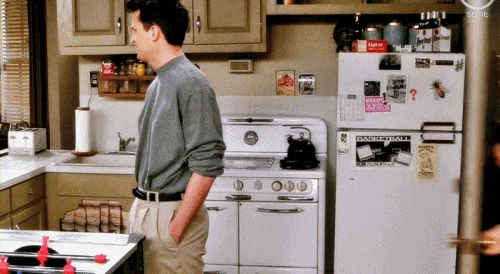
The bond that we share with friends is a special one. But unfortunately, not all of them last forever. Some friends evolve with you, while others go in a different direction. And that’s not in our control. If you feel that certain friendships may have run their course and you’re unsure if it’s possible to reconnect and repair, there are five telltale signs that you’re outgrowing a friendship. As sad as outgrowing a friendship is, trust that your inquiry will lead you to better and more fulfilling connections. (Estimated reading time: 11 minutes)
“Sometimes growing up also means growing apart.”
— Erende Sangma
Recently, I found myself scrolling through my Facebook home feed, only to land on a baby shower video. I started watching, and my mother, who was in the same room, glanced my way.
“Isn’t that the same girl you carpooled within 10th grade?” she asked. I nodded my head. She said, “how come you weren’t invited to her baby shower? I thought you two were close.”
“Oh, we just grew apart. I spoke to her on the phone some years ago, and it wasn’t the same,” I sadly replied.
The reasons we grew apart make sense in hindsight, but I still felt pangs of nostalgia years later. I remembered the good times we shared—whether it was sleepovers with other friends, playing video games or excitedly sharing sightings of our crushes.
I don’t think I’m alone when it comes to outgrowing a friendship. We all have those one or two friends that did not stay in our lives, and it can be tough to deal with it, especially if you were close at a certain time.
The connection you share with childhood, high school and college friends is special because of the plentiful opportunities you have to bond with them and the absence of adult responsibilities. But sometimes, you outgrow them no matter how hard you try to hang on.
As children, we learned that friendships last forever. Winnie the Pooh and his friends in the Hundred Acre Wood stuck together no matter what. This was further supported in our teens and young adulthood. We were convinced of the longevity of friendships after watching the gang on the TV show “Friends” and movie characters like Cher in “Clueless,” standing by their BFFs.
If you’re one of the few who is still as close (if not closer) with your friends of yesteryears, consider yourself lucky. But for the rest of us who are trying to grapple with the reality that we have drifted away from friends or you feel unfulfilled by one you’re in, know that it’s normal. Some friends evolve with you, while others go in a different direction. And that’s not in our control.
If you feel that certain friendships may have run their course and you’re unsure if it’s possible to reconnect and repair, there are telltale signs that you’re outgrowing a friendship. As confusing and disheartening as the thought of moving away from the familiarity of your bond and outgrowing a friendship, trust that your inquiry will lead you to better and more fulfilling connections, with or without them.
The purpose of friends in our life

Friendships offer a special bond that’s essential for our souls. The ancient Greeks called the affection shared in a spiritual connection “philia”—a love between two people who respect each other and enjoy camaraderie.
As social animals, philia is a type of love we all need. We may no longer need the help of others to find food and protect ourselves from predators. Instead, we need their emotional support and the positive impact they have on our overall wellbeing.
Think back to some of your fondest memories. Chances are they are involved in celebrating with others. Even your most challenging times were better because you had a shoulder to cry on. But why do we get close to only certain people and not others?
It’s estimated that we interact with around 80,000 people in our lifetimes. Most of those will be acquaintances or people we meet in passing. Some will feature prominently during certain life phases and then fade out, while others will last a lifetime. As the saying goes, “people come into your life for a reason, season or a lifetime.”
According to certain spiritual and religious traditions, those individuals with you develop long and meaningful friendships with are soul mates. You’ve made soul agreements before incarnating into human form with them to meet and help each other develop and grow. The kinship and comfort we feel with them signify a soul agreement.
Regardless of where you take a spiritual or a practical view of people you befriend, their presence in your life is significant. They have some value to give you if you’re open to receiving them.
In your journey of self-discovery, there’s perhaps no better way to transform, develop and advance in your life than with the aid of people you meet. Friends can contribute to our personal development by teaching and encouraging us and offering their advice when needed.
Outgrowing a friendship: Why do we grow apart from friends?
Before modern transportation and communication devices were invented, people lived in tight-knit communities in their towns or villages. They stayed in one locale their entire life and only mingled with those in close proximity to them.
Today, the modern-day person can interact with hundreds of people online and meet people of all kinds during their travels. Unlike our ancestors, we’re not tethered to one place and can move to several locations during our lifetime.
If you think about it, your friends in middle and high school are different from the ones you made in college simply because you moved to another educational institution. After graduating, you befriended colleagues in your workplaces, and your partner or spouse may have introduced you to their circle of friends.
The point is that the chances of outgrowing a friendship has exacerbated over the decades because of how our society has been shaped and the rites of passage we move through. From this lens, we can see that maintaining friendships is tougher simply because of the times we’re living in.
Another reality we must come to grips with is this: people change. What brings two people together at one stage might not be enough later in life. For instance, the only thing in common you may have shared with a high school friend was discussions about school, but as adults, your interests may be very different. Besides reminiscing about high school memories, there’s nothing else to discuss.
This reality doesn’t remove the sting but gives us the gift of closure. Just because you had a friend for many years and shared beautiful memories does not mean they are obligated to stick around. Unlike a marriage or a parent-child relationship, no societal clause binds you together. You can walk away at any point without any legitimate reason.
Besides circumstances (no longer in the same university, working in the same place) and a lack of common interests, there are other reasons why friends come and go in our lives:
- Distance: You’ve moved to different parts of towns or another state or country.
- Personal differences: You disagree on topics that are important to both of you, such as politics or how you raise your kids.
- Negativity: If your friend has become bitter and cynical, they’re probably not good company anymore.
- Lack of trust: Your friend let you down because they did not keep their word or share sensitive information with others.
- Flakiness: A flaky friend who keeps canceling on you and does not take the initiative to make plans becomes a burden after a while.
Growing apart from friends is never fun. It’s hard to stay close to someone who is not participating in your everyday life, sharing your experiences, and listening to your problems in person.
But I firmly believe that true friendships stand the test of time. If two people are committed to making it work, they will. If the other person does not reflect that desire, cherish the memories and allow them to fade away if that’s what they want.
Becoming flawesome: why outgrowing a friendship can be a form of self-love?
Moving away from friendships can often bring up guilt, especially if we’ve been with a friend for many years. We’re afraid of being judged and seen as selfish and self-centered. The truth is that walking away from a friendship that’s run its course is a form of self-love.
In her book, “Becoming Flawesome,” entrepreneur and speaker Kristina Mänd-Lakhiani address our tendency to fall in love with the idea of who we could be instead of who we really are. She explains that this happens for several reasons, such as social conditioning, our inner critic and our desire to please others.
“We sometimes waste our entire lives trying to hide our true selves behind a mask…We put on masks to be liked and be accepted because our need to belong is biologically wired into us over thousands of years,” Mänd-Lakhiani writes. “Yet, to be truly liked and truly accepted, we need to learn to take off our masks.”
Removing the mask may involve leaving parts of you and people associated with that behind. It’s crucial for reclaiming your happiness and living truthfully within your “flawesomely beautiful reflection.” You’ll also give the space needed for you and your friends to find friendships that genuinely resonate with them.
Learn more or purchase a copy of Kristina Mänd-Lakhiani’s book “Becoming Flawesome: The Key to Living an Imperfectly Authentic Life” here.
5 signs you’re outgrowing a friendship

Now that you know the significance of friendships and why some are not meant to last, you can better evaluate your friendships. These are the five classic signs that you are outgrowing a friendship and that it may be time to move on:
1. The friendship has become one-sided.
A common sign that two friends have grown apart is that it becomes one-sided – one person puts in most of the effort to maintain the friendship. If you’re constantly making plans, texting and following up with friends, chances are high that they’re not prioritizing the friendship (and your feelings.) One of the basic tenets of friendship is to be there for each other, and if they are not measuring up, it may be time to let go of the connection. Keep in mind that, like all relationships, there might be phases of a lack of contact, such as when a friend is going through a significant life change, like a new relationship or having a baby.
Alternatively, you might be the one who is no longer trying to respond and stay in touch. If you’re not that invested anymore, the ethical thing to do is to let the other person know where you stand.
2. You have no common interests, and your priorities in life have changed.
A classic sign that you have grown apart from a friend is that you no longer have anything in common. If you find yourself only speaking about memories and old friends you had in common and then running out of things to talk about, you’ll know that the two of you have changed and are in different phases of your life. This often happens with childhood and college friends because, as adults, we begin to pursue other paths specific to our needs and interests.
One of you moved to another country, received higher education, pursued your passions, or invested more in your personal growth, while the other stayed the same. It could be that you’re in different phases in your life – one friend is a full-time mom, and another is focused on their career.
As enjoyable as reminiscing your rich histories are, holding on to a relationship you’ve outgrown is the best thing to do as it could taint the connection.
3. You don’t like who you are with them.
If you have to revert to an older version of yourself that you don’t like when you’re around a friend, there is a disconnection between you. For example, your friend still refers to you as the “prom queen” or the “nerd” in high school, but you no longer identify or appreciate those labels. Such dated exchanges that don’t allow you to be your true self can feel stifling and make you feel like you’re going backward.
You might also feel restrained from expressing what you think and how you behave because you worry that they may judge you and not accept your transformed version. Instead, you might wear a mask, hide certain aspects of yourself and take up old habits (even unhealthy ones) just to fit in and make them feel comfortable.
4. Being in their company leaves you feeling drained and depleted.
Hanging out with friends is supposed to make us feel good and supported. They should add to our life versus take away from it (and vice-versa.) If you’re not having an enjoyable experience and walk away feeling drained and exhausted, you know you’ve outgrown a relationship.
Being in their company could be an unpleasant experience for many reasons – you argue a lot, they have much drama going on in their life, they’re always negative and complaining about things, get offended easily, or have strong harsh opinions about your choices.
While we all go through rough patches where we may not be our best selves, we can’t constantly bring that distressed version of ourselves to the friendship table. Instead, we should get the help we need. We want our friends to enjoy our company and not feel like they have to walk on eggshells around us.
5. You don’t look forward to seeing or avoiding them.
If you know you’re going to meet a friend whose company you find toxic, you’ll find yourself dreading the event and have a sinking feeling in the pit of your stomach. In their absence, you complain about them to other friends and family.
Because you no longer look forward to being around them, you constantly find excuses when they call you to hang out and prefer to be alone or with other friends. You don’t really care to connect with them; if you do, you do it out of guilt or obligation.
You may also relish the idea of seeking new friendships with people with whom you could have a fresh start.
What to do when you’ve outgrown a friendship

If you identify with one more of the signs that you and your friend have grown apart, here’s what you can do to make the transition out of the friendship easier for everyone involved:
1. Have an open conversation with your friend. Speak about your concerns and clear up any misunderstandings, conflicts, and tensions, so there’s no bitterness if and when you part ways.
2. Take a break from the connection. Having space between you and your friend can give you a fresh perspective and allow you to see how you feel when they are not in your life. Be clear and compassionate in expressing your need for space to your friend.
3. Step away. If your friendship has become unhealthy, distant, and toxic, and a conversation with your friend could be tense and confrontational, it may be best to let the friendship fade naturally. Don’t reach out at all; as time passes, you and your friend will move in different social directions.
4. Focus on self-care. Moving on from a friendship can be hard, especially if you are close. That’s why engaging in self-care is vital to healing and feeling better. If you need closure, you can write a letter addressing your friend without sending it or speak with a professional to resolve any feelings of guilt, loss or shame associated with the friendship.
5. Make a plan to network and meet new people. Handpick events, parties and gatherings where you can meet like-minded people. Let the possibility of meeting compatible friends excite you and assure you that you are not alone and that there is plenty of fish in the friendship sea.
People come and go in your life, but what we have left are the memories that we share with them. Instead of focusing on the loss of a friend, we can be grateful for the good times we shared and the lessons they taught us, which made us better and stronger. Each day offers us chances to connect with another person, which can lead to fresh opportunities for growth and kinship.
All my best on your journey,
Seline

Question for you: Have you outgrown a friendship in your life? How did it make you feel and what did you learn from outgrowing a friendship?
Did you like this post? Sign up below, and I’ll send you more awesome posts like this every week.

#BecomingFlawesome